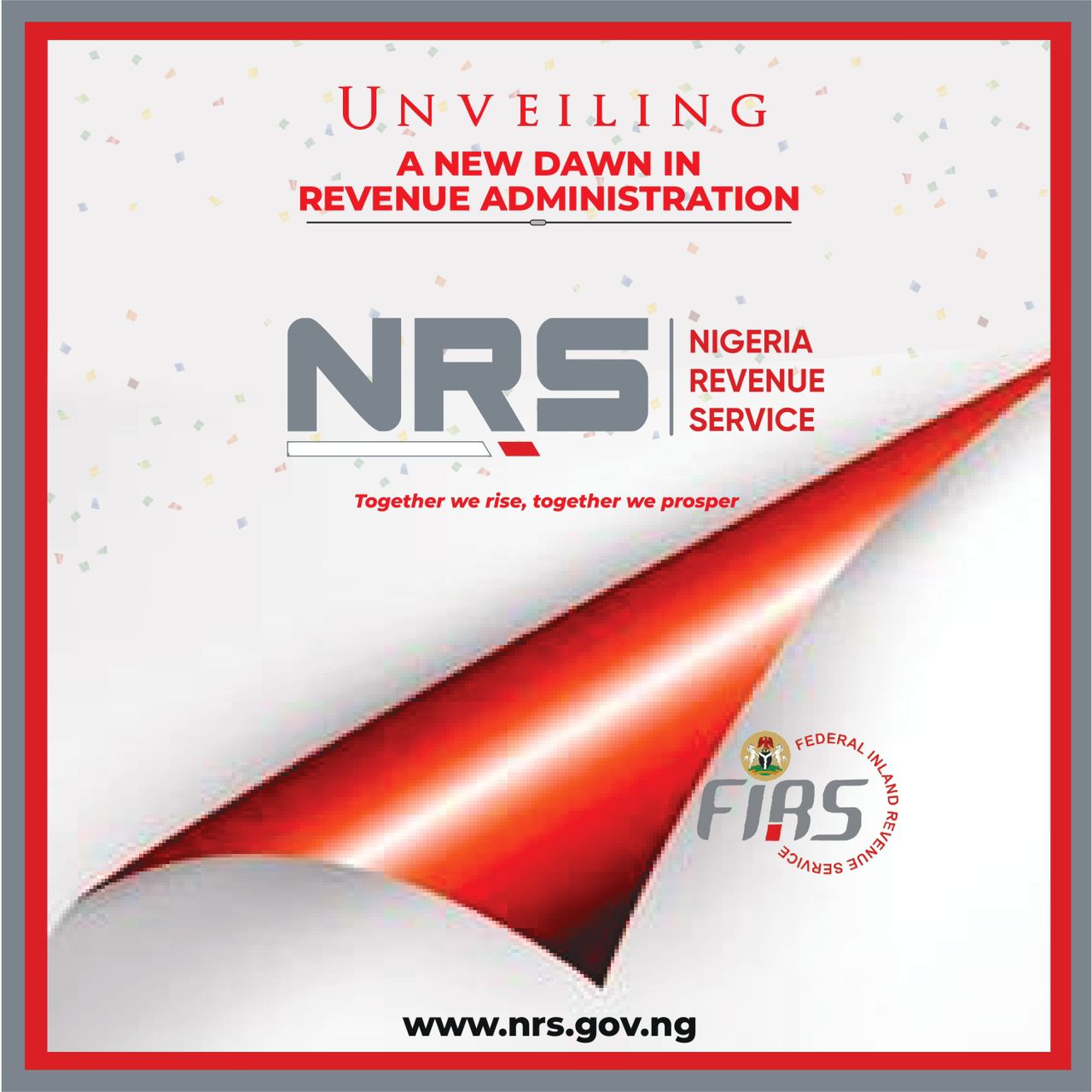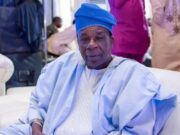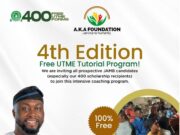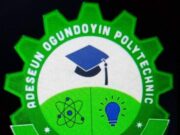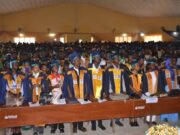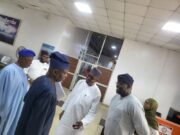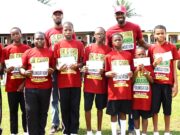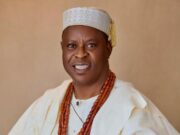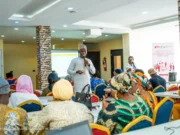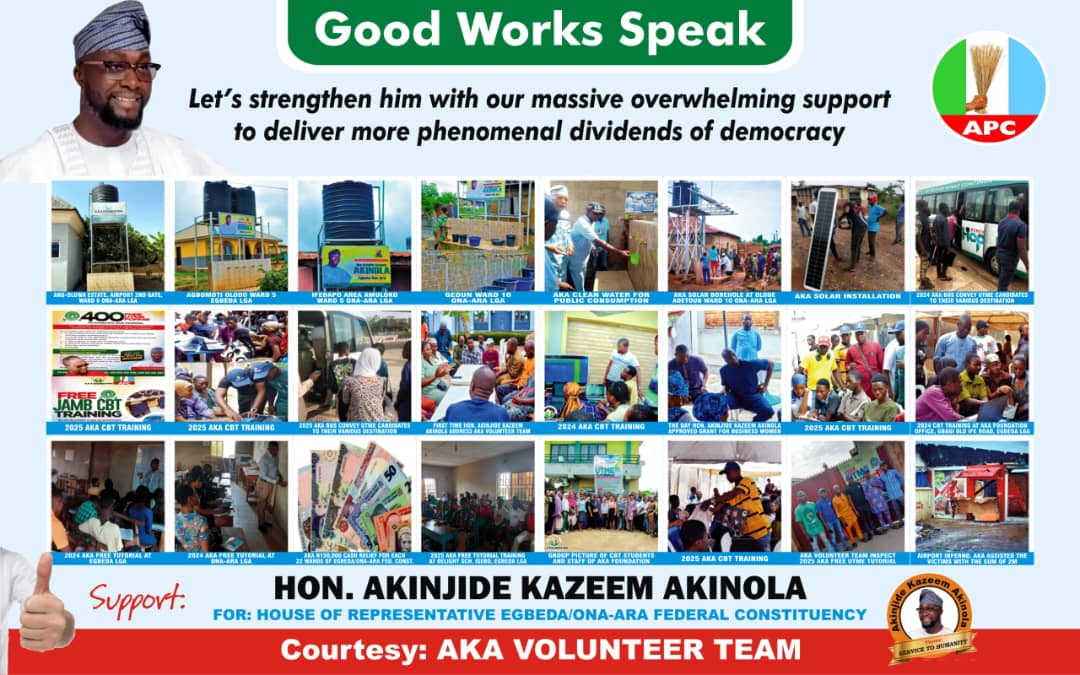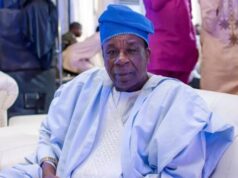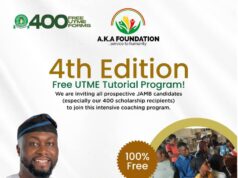Been A Paper Delivered By Bolaji Gbengbeleku Adegoke, Ph.D, ACIS, ACA, MNIM, FIDR, Cert Ed) At Faculty Of Arts, University of Ibadan, Nigeria
INTRODUCTION — The topics, Leadership and Administrative Professional Career Development: Preparing for the future is a topic speaking directly to you because self-development and self-leadership is a very personal and individual consideration. The purpose of the topic is to introduce you to the need to develop your “soft” skills, to outline options for how might achieve this including the ideas that will lead to the development of project, that is “Project” approach and to encourage you to step onto the road of self-leadership and continual interpersonal skill development.

Whatever your profession, you will have to work with other people and doing so requires many skills, a lot of which might be defined as soft – skills or generic skills. The work environment in today’s society is complex, changes constantly and requires a degree of resilience from all individuals to cope in building their careers. This soft – skills includes self-leadership and critical thinking skills, which means that whatever your core function in an organization, the type of skills you will need to succeed will go beyond the knowledge of your own part particular specialty.
English, History, Philosophy and Language Specialist in particular will need to be resilient, be able to self-head and think critically to succeed. There have been studies conducted on the skills of Graduates of Universities moving into the world of work, the studies concluded by stating that.
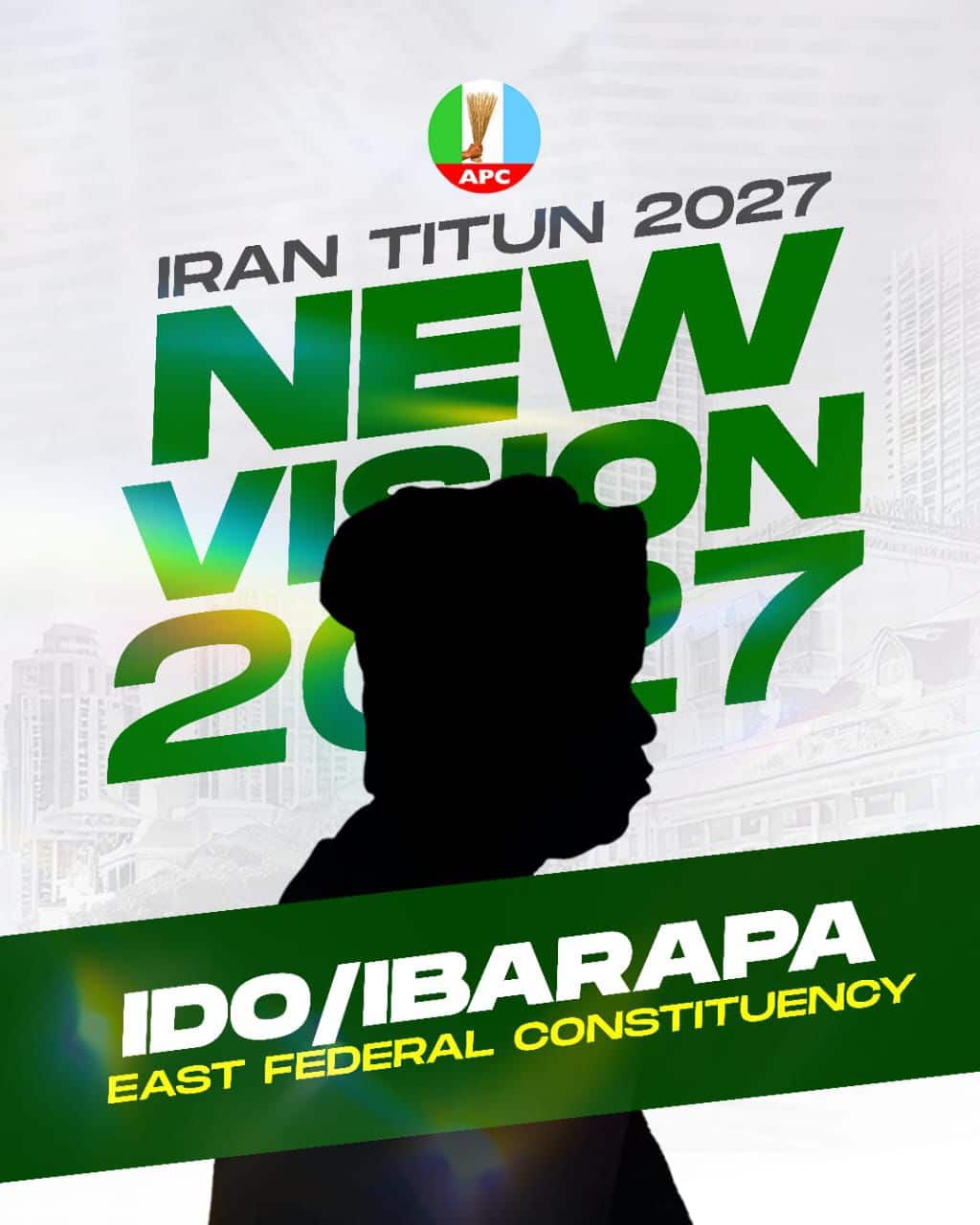
The students were not taught team-spirit skills, Leadership skills, Verbal Communication Skills, Interpersonal Skills, Emotional Intelligence Skills, Sales, Marketing and Negotiating Skills
Conflict – Management Skills. These skills are virtues and capacities that go well beyond technical competences, these are elements that can set students and consequently professionals apart.
WHAT DO YOU NEED/WANT?
A question for you and one we will attempt to answer is:
Does your idea provide solution to a potential problem?
Is your idea most desirable among other options?
What will your ideas/ideas change in the organization you are intending to work?
These questions are lead to investment in human capital and not paper capital that is, what individual can do, other than what a university or professional institute certified you to be such as your degree qualification.
The candidates who have developed the ability to exhibit answers to the questions listed will becomes employable in that, the master of all the soft skills and competencies will be able to solve any life-challenging problems.
Self-leadership establishes deeper soft-skills that brews fresh and updated ideas, ability to be self-aware and capable of self-development. Self-leadership skills extend beyond a discrete list of generic skills to incorporate effective self-management and career building skills. This also extend to creating in a candidate a “work – ready” attitude and character which later leads to breaking greater barriers and attaining greater heights.
Self-leadership allows flexible mindsets and transferable skill sets and ideas that are not problematic but are authentic for communication, time management, confidence, taking responsibility, self and work presentation, writing skills and dream work.
TRANSFORMING YOUR IDEA TO A PROJECT
The ideas and skills acquired or developed that only leads to knowledge and does not give any privilege, that is turning into a product, brand, services or result is a waste (wasted idea or skills). The idea and skill sets that lead to actions are the most solid idea or skill. Writing up an idea to develop a project is a focused task. Written communication skills are required and highly developed, and focused writing helps to communicate the recommendations.
Turning ideas into a project can tick a lot of soft-skills boxes. The project can tick a lot of soft-skills boxes. The project allows candidates to develop innovative assessment challenge, real world exercises, case studies experiences etc
CASE STUDY OF IDEA TURNING INTO A PROJECT CONTENT CREATION
– Idea Creation
Creation of concepts: Developing an idea that is unique and that can call for attention.
Scanning of area of coverage: Evaluating the importance of the idea, population to your idea and key lesson of your idea.
Planning: You must gather a lot of information and inspiration to support your idea. Timing of the project that is, when to start and when to finish and detailed methods in carrying out your content.
Creation: Recording of your idea which may include filming, review and revising your content and publish it.
Evaluation: Try getting feedback, refine your approach based on the results
BENEFIT OF IDEAS TURNED INTO A PROJECT
This includes:
Creation of something new: This brings about new product, brand, services, outcome etc
Problem – Solving: Projects can provide solution to real world problems or challenges
Confidence boost: Completing a project can enhance self-confidence and sense of accomplishment.
Professional Benefits
Career Advancement: Successfully completing projects can lead to career advancement opportunities such as promotions or new jobs prospects.
Networking Opportunities: Projects can provide opportunities to collaborate with others, build relationships and expand professional networks. Financial Benefits, Revenue generation, and Investment opportunities
SELF-LEADERSHIP PROCESS
Self-leadership is a self-influence process through which people achieve self-direction and self-motivation necessary to perform. No one can make an individual perform well unless that individual chooses to co-operate.
The current working environment and economic situation point towards fewer people being employed to do as much or more work that used to be carried out by larger numbers of people, while hierarchies continue to flatten. This means that individual in work need to take more responsibilities and so self-leadership is essential because there are fewer others to “fall back on”.
Self-leadership is the heart of organizational behavior which are;
Authenticity: This is attending to your own behavior and values which would operate to higher standards and may not necessarily be supplanted by those of a boss.
Responsibility: This is your own self-led behavior and intentions with regard to responsible outcome. This include compassion, courage and integrity
Expanded Capacity: This is developing yourself in a way that enable your personal growth towards a wider capacity for self-leadership. Going through the self-leadership journey is of great importance and are dependent on a given situation/job role such as: Self-discipline and self-starting
Emotional intelligence: Ability to adapt and work under unfavorable pressure and weather. Creativity, innovation and problem solving
LEARNING TO BECOME LIFE-LONG STUDENT
This is an aspect where individual need to employ self-leadership skills such as:
Read: This is essential because it enhances personal and professional growth, improves understanding and broaches knowledge. Read outside the area of your specialty.
Listen: This helps in absorbing information, understanding different perspective, building trust and rapport, developing self-awareness, improving team work and collaboration and enhancing communication skills.
Observe: This is gaining insights, learning from others, increases personal growth and it enables you to pay attention to details
HOW TO MANAGE MONEY AND WEALTH
Personal Finance and Wealth Management includes;
Financial Literacy: Lifelong learning can include acquiring knowledge about personal finance, investing, enabling individual to make informed decisions about their financial resources
Wealth creation methods: continuous learning can provide insights into wealth creation methods such as investing in stocks, real estate or other cash flowing asset.
Bolaji Gbengbeleku Felicitates Sen. Sarafadeen Alli At 62
HOW TO CHANGE LIFE DIRECTIONS
Growth mindset: Continuous education helps individual to promote a growth mindset, encourage individual to view challenges as opportunities for growth and development
Embracing uncertainty: Lifelong learning can help individuals become more comfortable with uncertainty, embracing the unknown and taking risks.
HOW TO CHANGE SIGHT TO INSIGHT
This includes:
Reflection and Analysis: Lifelong learning encourages reflection and analysis, enabling individuals to distill insight from their observations and experiences
Connecting the Dots: Continuous learning helps individual connect seemingly unrelated pieces of information, revealing new insights and perspectives.
CONCLUSION
In leadership and administrative professional career development which in turn preparing a candidate for now and future, ideas and turning an idea into a project cannot be over-emphasized and all this are pathway for becoming a leader in a changing professional landscape.
The core of it is the skill acquired through self-leadership process and learning to become lifelong student.
RECOMMENDATION
Universities should own responsibility of developing non-technical skills and reward students on this activities
Universities should include in their curriculum skills like; oral communication, commitment to lifelong learning, ethical awareness, vision and resilience.
Graduates should inhibit flexible mindsets and transferable skills sets in this new knowledge economy.
REFERENCE
Elaire Conway & Darren Byne. 2018. “Contemporary Issues in Accounting”
Akens D. Micheal and Grover L. Porter . 2003
Your EQ Skills: Got What It Takes
Andrews Jane, & Helen Higson. 2008
“Graduate Eployability. “Soft Skills” versus ‘Hard’ Business Knowledge
Ay. F Alper, Abdullah Karakaya & KAsin Yilmaz 2015. “Relationship Between Self-Leadership and critical Thinking Skills”
Goleman Daniel 1995. Emotional Intelligence.
Why It Can Matter More Than IQ
